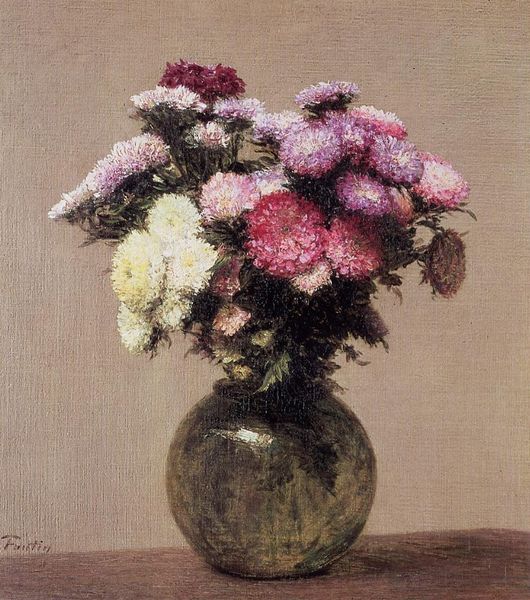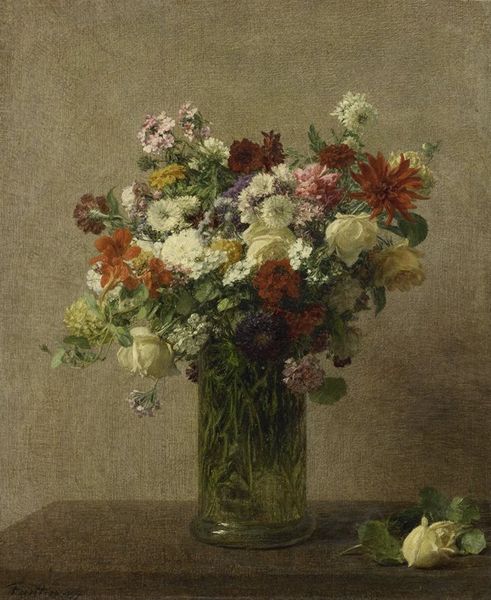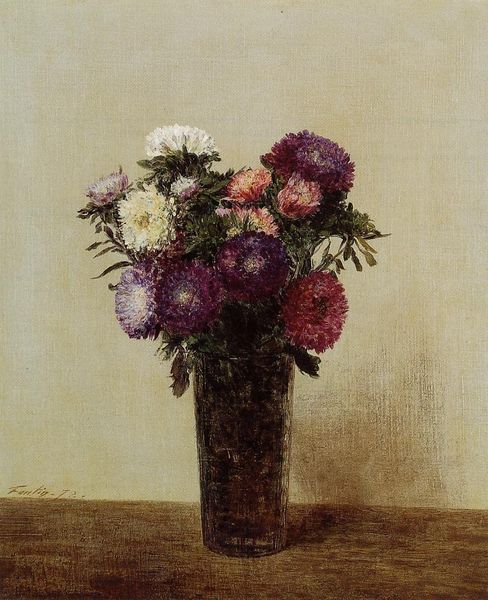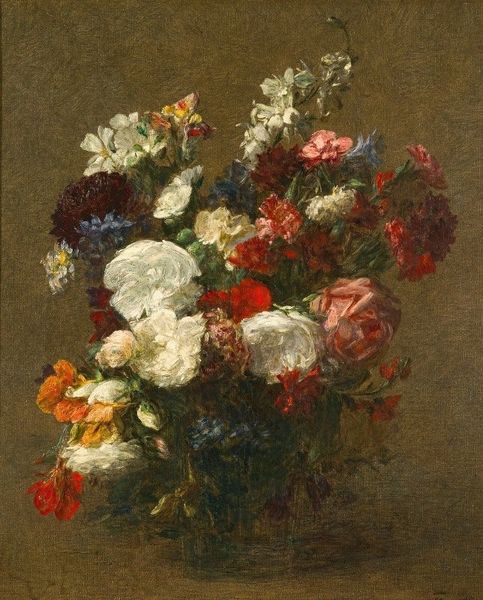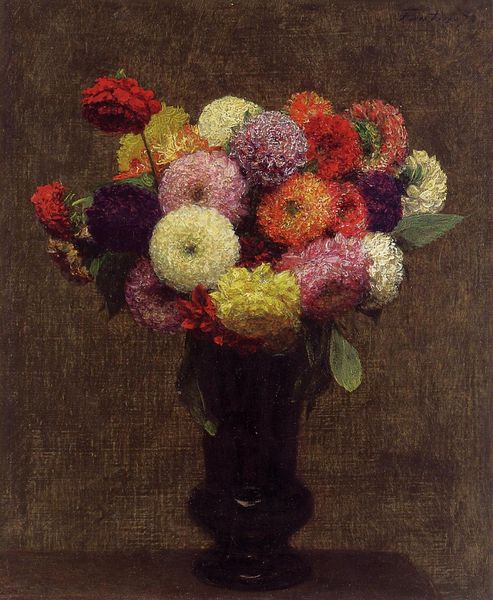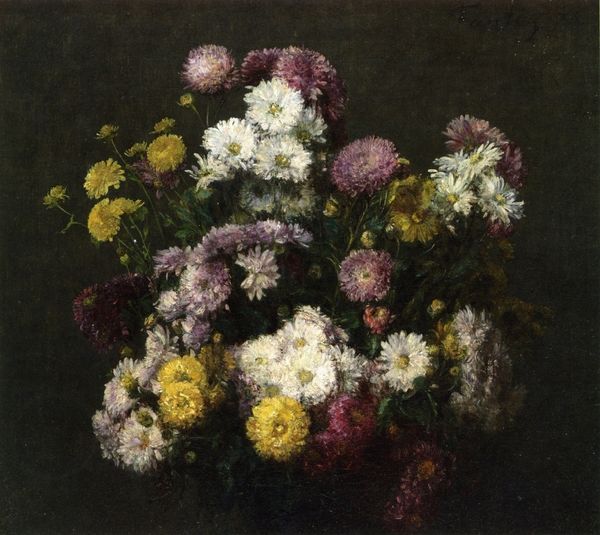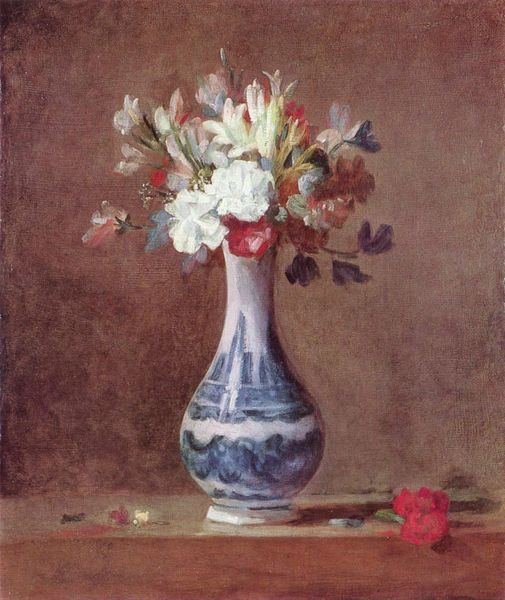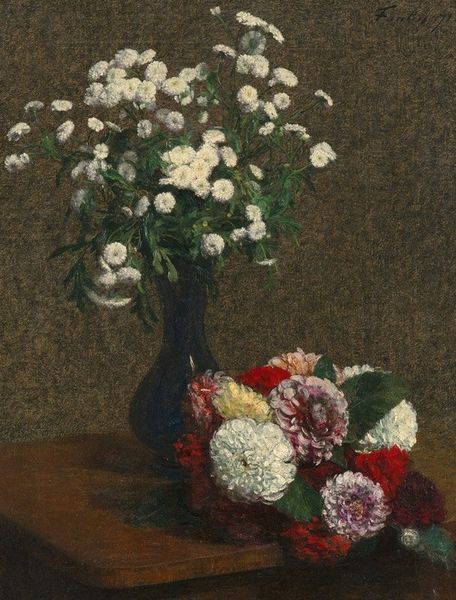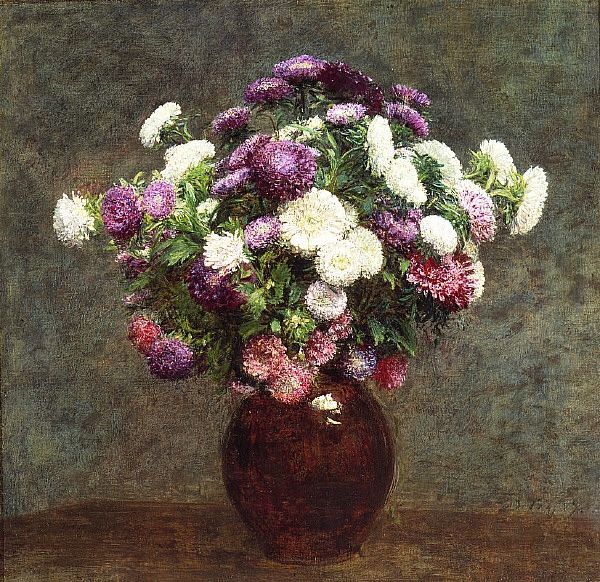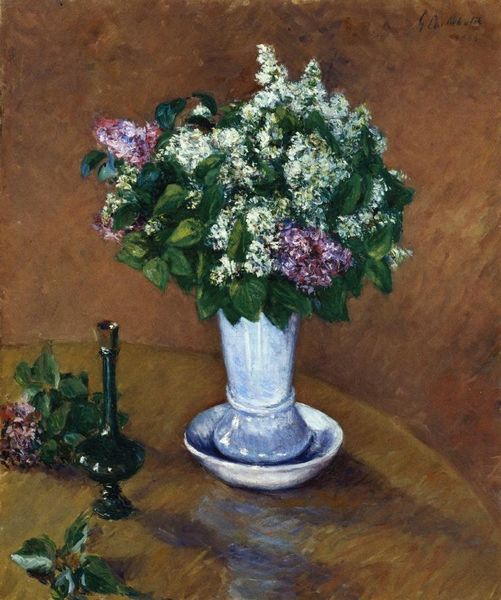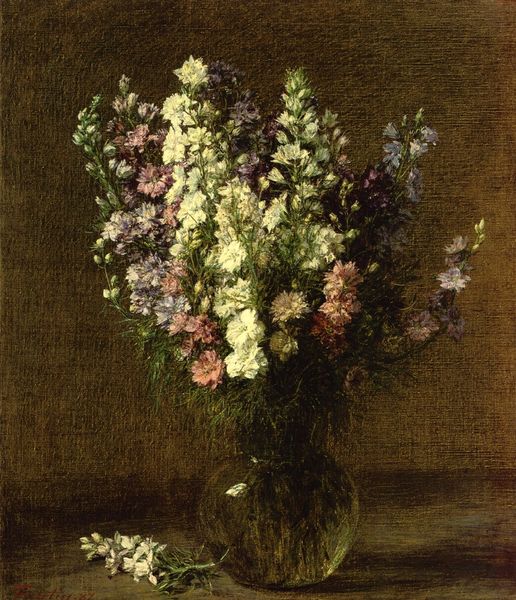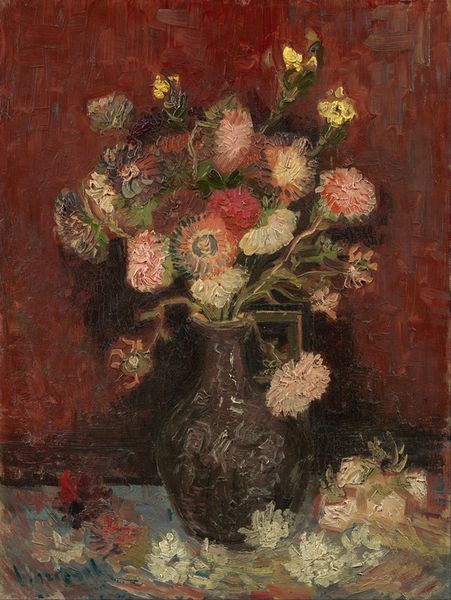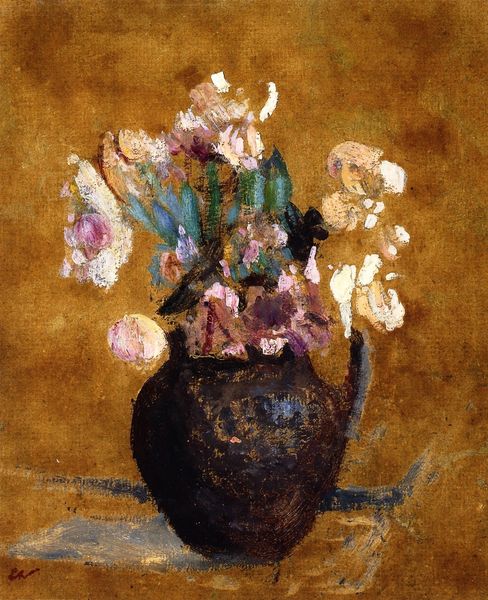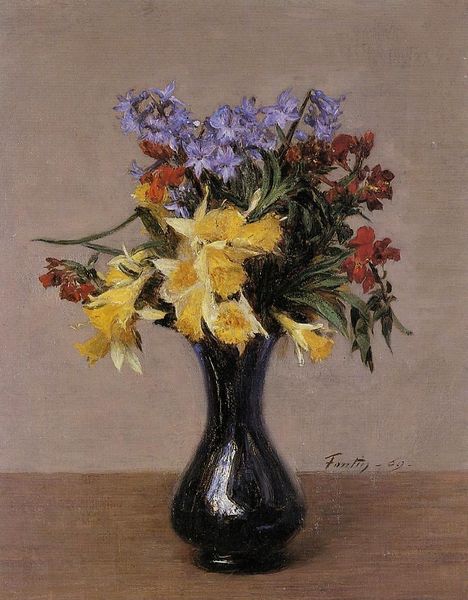
Copyright: Public domain
Curator: Right, let’s immerse ourselves in Fantin-Latour’s “Queens Daisies,” an oil painting dating back to 1872. What’s your first impression? Editor: Well, immediately, I'm drawn to the vase; it appears grounded, earthy. The blurred effect almost pulls it into the table and sets the stage for the ethereal floral display above. Curator: Ethereal is spot on! There’s something incredibly personal in Fantin-Latour's flower paintings. You sense the fleeting beauty, the almost painful awareness of time passing as you see it captured. Do you feel it too? The melancholic fleeting state of living? Editor: Yes! Especially when you consider the societal constraints placed on women during the Romantic era, beauty was valued above all. Perhaps this fragility represents a visual metaphor for women whose existence were restricted by norms which limited their freedom and choices beyond outward appearance and beauty, thus limiting their growth beyond certain roles, like these flowers whose fate is already sealed, to wither once plucked. Curator: Absolutely. And that brings us to the composition—a romantic jumble of daisies, each painted with such individual care, yet existing as one unruly bunch. I find the tension fascinating, as there is wildness and softness here too, an interesting juxtaposition for Fantin-Latour's time. The flowers, although in a container of respectability, their arrangement evokes feelings of non-conformity! What do you think of his color choice here? The pinks, purples and whites feel unconventional in my opinion... Editor: Right? The unexpected and intentional, is where one truly finds beauty! These choices subtly subvert the tradition of static, perfectly posed still-life arrangements which is almost a feminist statement of its own time in regards to painting style. It breaks with conventional representations by embracing natural imperfection, which elevates a painting beyond skill and talent to true, authentic art. What are your views of authenticity in today's modern setting? Curator: Hah! Don't get me started! Let's just say, I appreciate when art challenges norms... But this piece, it feels intimate. Like a private moment with something lovely. Maybe these works provide a moment to just pause and notice the beauty in what will never last, both within the context of our lives and for the historical and societal constraints of his time. What's your final takeaway here? Editor: I would agree, but perhaps a final reflection... considering how far we've come regarding woman's social status in modern society!
Comments
No comments
Be the first to comment and join the conversation on the ultimate creative platform.
